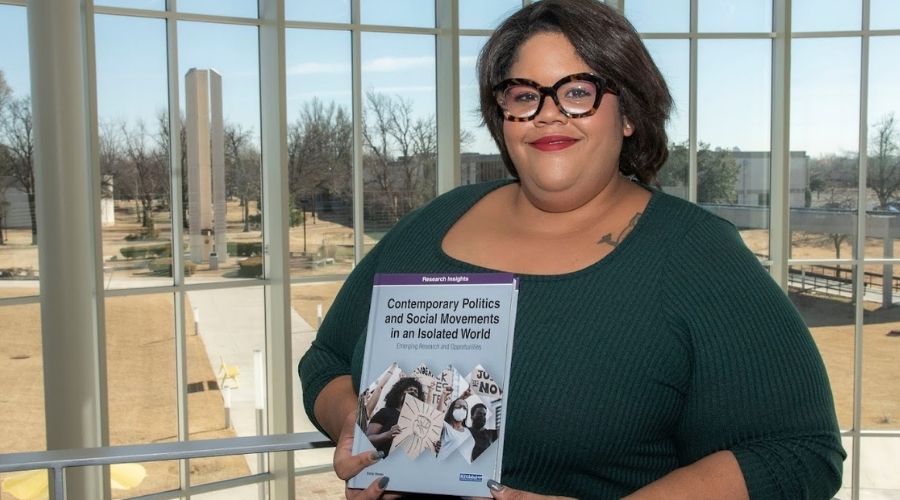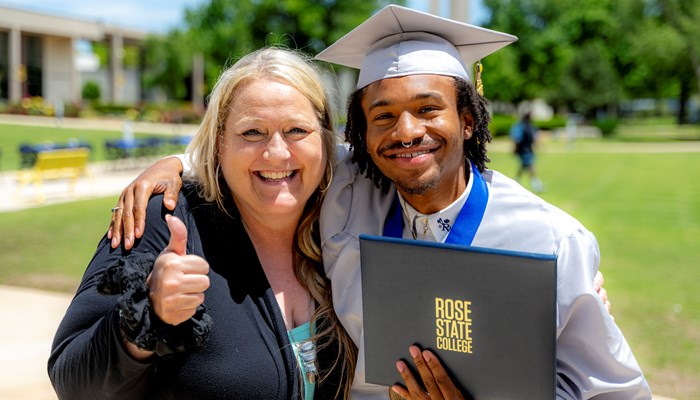Women’s History Month: An Interview with Dr. Emily Stacey Published March 31, 2022
 In honor of Women’s History Month, we sat down with Rose State Professor of Political Science Dr. Emily Stacey and asked her five questions to learn more about her and how she has gotten to where she is now. We hope these answers inspire you to never give up on your dreams.
In honor of Women’s History Month, we sat down with Rose State Professor of Political Science Dr. Emily Stacey and asked her five questions to learn more about her and how she has gotten to where she is now. We hope these answers inspire you to never give up on your dreams.
Dr. Emily Stacey - Professor of Political Science, Moderator/Coordinator
gender or ethnicity.
- 1. What advice do you have for younger women?
- What are you most proud of as a woman?
I am most proud of the fact that I have it all – both personally and professionally. I was able to put myself first in terms of my education and my career. I started at the state Capitol when I was 20. I wrote my master's thesis while I was working in the Capitol press room. I got through my Ph.D. program work in three years.
It's just really cool to be in a position now where I can do things like talk about Ukraine and talk about my expertise and my experiences, and then get to go home to my baby. And again, I think that for a long time the older generations were just so adamant that you had to choose career or family in the seventies, eighties and even in the nineties, it was still very prevalent. Now I think the millennial generation females and the younger generation have this door open to them – that you can absolutely have it all.
- Tell me about your greatest achievement - whether personal or professionally at Rose State.
My baby is obviously a pretty big one. Also, the day that I had my bound dissertation in my hand was one of the most monumental days of my life. I was in Swansea, Wales. I went to campus and got this bound copy British style. I’m very, very proud of my doctoral work.
- Why do you think we need more women leaders?
We are sympathetic and compassionate. Women can do everything a man can do in lipstick and high heels most of the time. Obviously, representation is the largest factor. Women represent more of the population than men and yet are still so woefully underrepresented. When you get down into the demographics of women, black women, Asian women, Muslim women, et cetera – the under-representation only gets deeper.
So, I would really like to see more intersectional feminism, number one, but I would also love to see that creep into our politics. I would love to see more women in our political and judicial systems. We need more young women who are diverse and who have different perspectives to demonstrate what this country should be, what democracy is, and how it should work for women and children.
- Tell us about some major obstacles you’ve had to overcome to get to where you are now.
I set myself up for the smoothest path to where I am. I went straight from high school to college and got my two degrees in four years. I then immediately went on to a master's program and then on to my Ph.D. program. I was out of college for one year and I almost went completely crazy. I really kind of set myself up in a trajectory where I could complete my degrees, not have family problems young, et cetera. I also had a wonderful family that supported my situation economically and psychologically. I’m blessed to say that I have been one of these lucky women who has been well supported, which is cool.



